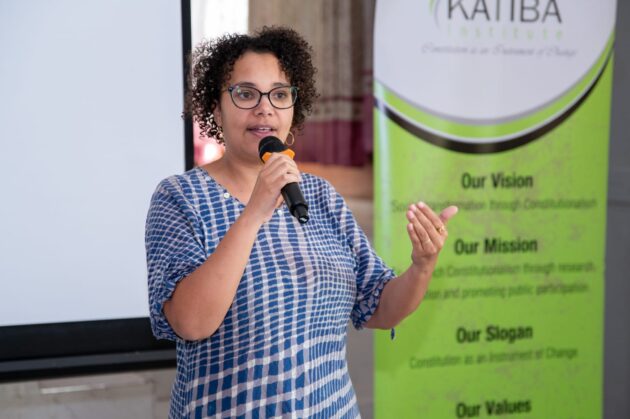
County, National govts uregd to communicate effectively with the public » Capital News
NAKURU, Kenya, Feb 5 – County and National governments have been urged to proactively and openly share information with the public through effective mediums.
Katiba Institute extended the petition on information sharing to government agencies and parastatals as this would ensure that people are involved and aware of how the funds and resources are being managed.
Executive Director Nora Mbagathi said information was crucial to all aspects of life because it formed the basis of how the people know whether their resources were being spent correctly.
Speaking at Nakuru Christ The King Institute during a Community Engagement on Access to Information, she said proactive and honest information sharing would also help the people in evaluating leaders and duty bearers.
The Community engagement which is organised in partnership with MidRift Humand Rights Network is part of a larger project of training Community Based Organisations and media practitioners on Access to Information (ATI) I Nairobi, Nakuru and Samburu.
Mbagathi said KI was promoting proactive disclosure of information through the project that has also trained representatives from Bungoma, Elgeyo Marakwet, Nandi, Trans Nzoia and West Pokot.
“The Constitution, through Article 35 guarantees every person the right to access information because it is the core of accountability and transparency across vital issues such as health, revenue collection, politics and the social contract,” she said.
Mbagathi said a government could not legitimately purport to be implementing development and policies for the people or by the consideration of the public if the people are not effectively involved in decision making.
“Accountability also benefits the government because at the end of the day, it provides legitimacy and ensures that it works with the people,” she said.
Mbagathi noted that compliance to ATI had not been achieved due to a myriad of challenges among them the mediums used to share the information, language, time and document size.
“The question is how the information is communicated, to who and through what mediums. Some counties have websites while others share information through social media but there are thousands of people who cannot access the internet,” she said.
She urged counties to ensure that vital information reaches people in the rural areas and simplify it to ensure it is legible to people with different abilities including the illiterate and those with hearing or visual impairment.
“County government, the national government and its agencies should avoid massive documents and should go further and simplify the technical and legalese language in them,” she said.
Laban Musundi, a participant who is also a human rights activist and a public litigant said duty bearers and political elite fear disclosing information yet ATI is a critical element to transparency.
He said most of the access to information letters are ignored compelling activists to move to court in search of information that should have been proactively shared with the public.
Musundi said there should be no challenges in sharing public information because it is a constitutional mandate.